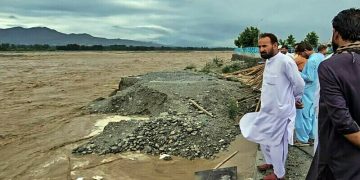The IMF has agreed to revive the $6 billion programme which was suspended in April last year due to the coronavirus pandemic and policy disagreements. The global financial institution reached a staff-level agreement which would pave the way for the release of $500 million tranche of loans for Pakistan.
This comes at a huge cost that will eventually fall on consumers as the government has agreed to rationalize expenditures, increase electricity prices and imposed additional taxes. The recent hike in petroleum prices and power tariffs is considered a precursor to the revival of the bailout plan. The complete details of the staff-level agreement reached with the IMF are still unclear but all pending reviews have been approved subject to the implementation of certain conditions.
Pakistan is now set to receive a crucial cash inflow possibly as early as next month. The IMF praised Pakistan and said authorities were “committed to ambitious policy actions and structural reforms to strengthen economic resilience and advance sustainable growth.” Pakistan has also been working to implement IMF-supported economic reforms and increase tax collection aimed at stabilizing the economy to varying success.
The government has been encouraged by the positive trajectory despite the pandemic. The country has witnessed an increase in exports, remittances have remained above $2bn per month and there was a surplus current account for most of the ongoing fiscal year. The authorities expressed a sigh of relief that Pakistan was not badly affected from the pandemic and successfully underwent a stabilization phase. The government is now counting on the IMF bailout package to bolster the fiscal position and increase global confidence in the economy.
The IMF should be seen as the lender of the last resort but authorities see it as the first choice and dash off whenever there is a financial crunch. These neo-liberal institutions like the World Bank and IMF have seldom had a success story in developing countries due to its economic policies which have never worked for the country’s benefits and can make the economic situation worse.
We have been hearing for many months that the economy is on the right track. While the loan would shore up the economy, it would increase the burden on ordinary citizens who have already had a tough year. Pakistan’s economy has been negligible growth, unemployment is rising and inflation has still not been contained. This should be a greater concern for the government how the most vulnerable will fare than making lofty and contradictory statements that we are heading in the right direction.






























